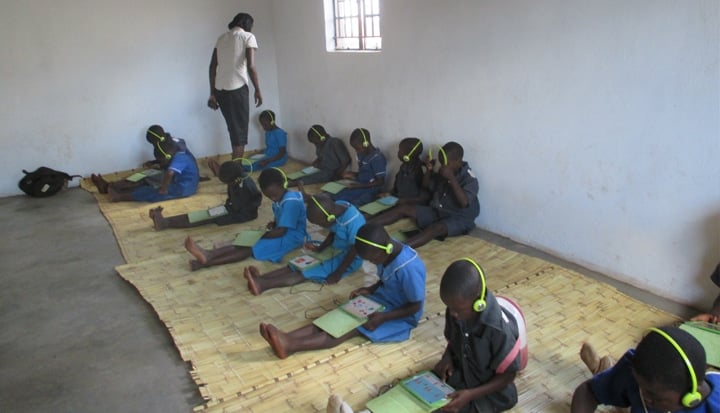“I want to study medicine so at least one day I can prescribe medicine for my mother,” Maria Kafumbu, age 7, said when asked what she wants to do when she grows up.
Her classmate, Zainab Muhammad, also wants to be a doctor. “I feel bad seeing many sick children at hospitals, and would like to help reduce infant mortality in Malawi,” Zainab said.
Both girls dream of finishing their secondary education and then attending the College of Medicine in Blantyre to earn their medical degrees. However, realizing dreams such as these is extremely difficult in Malawi, as the country’s overstretched school system fails to provide students with the quality education at basic grade levels.
In an effort to address this, VSO Malawi has partnered with a UK-based software company, OneBillion, to deliver a technology-based education project that tries to boost the quality of learning for Malawi’s primary school children.
Dario Gentili, VSO-Malawi Country Director says; “Malawi’s school systems suffer from issues that have been compounding since Free Primary Education was introduced in 1995. At that time the government aimed to achieve higher teacher delivery later on but now an insufficient number of teachers, low teaching quality, and large class sizes still stand as the main debilitating factors in delivering the best education to these children. Fertility rates currently projected in Malawi suggest that this problem will not be solved soon.”
OneBillion’s Masamu software, delivered in the local language on iPad minis, focuses on building primary school children’s core competencies in literacy and numeracy, the fundamental requirements for self-development and progression.
“This product takes the child from a basic standpoint, like shape or number recognition, to a point of core competency in numeracy, literacy, and English,” Gentili explains.
Unlocking Talent integrates children’s tablet-based learning into the daily curriculum by taking 30 children out of class for 30 minutes twice each week. iPads with Masamu are housed and charged via solar power in a learning centre, provided by VSO, where children can be completely immersed in their tablet-based learning.
The child becomes the centre of the learning process with Masamu, and can interact with the curriculum on an intense scale as they are able to touch, see and hear lessons (as they are provided with headphones). Results piloted in Malawi and the UK have demonstrated accelerated learning for students accessing tablet-based learning one hour a week for 18 months.
“We can guarantee the quality of the product because all children are going through the same process,” Gentili said. “It’s surprisingly cost-effective because a number of children access the same iPad, the cost comes out to be about seven pounds per child.”
With a lifespan of more than 4 years and few reports of issues, the solar charged iPad mini is a resilient platform for administering Masamu. To ensure that learning centres are maintained and basic issues with the iPads can be fixed, VSO has rolled out a series of teacher trainings for both pre and in service teachers. Teachers must be comfortable with three elements: understanding the equipment and how to fix basic things, how the technology works from a pedagogical perspective, and how to make sense of the data the emerging data from progress reports the software is able to make for each child using the software.
As noted in the pilot, the children are improving. Maria and Zainab are doing exceptionally well in class now thanks to the tablet project operating in their standard 2B class at Biwi primary school.
Maria’s favourite subject is maths, while Zainab likes English best. “With iPads I can see pictures of what I’m supposed to do in assignments, unlike in the classroom where the teacher simply draws sketches on the board,” Maria said. “These drawings are not always accurate, but with Masamu, I am able to use the actual and exact drawings of the items I’m asked about,” Zainab added.










